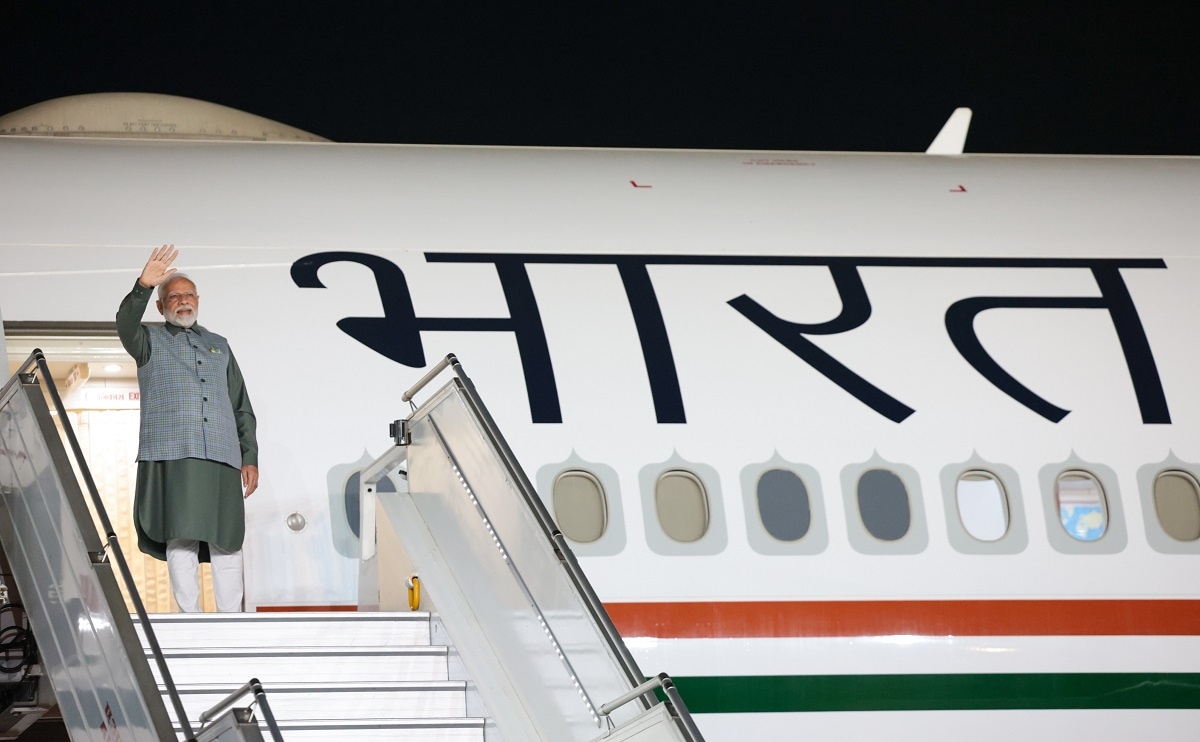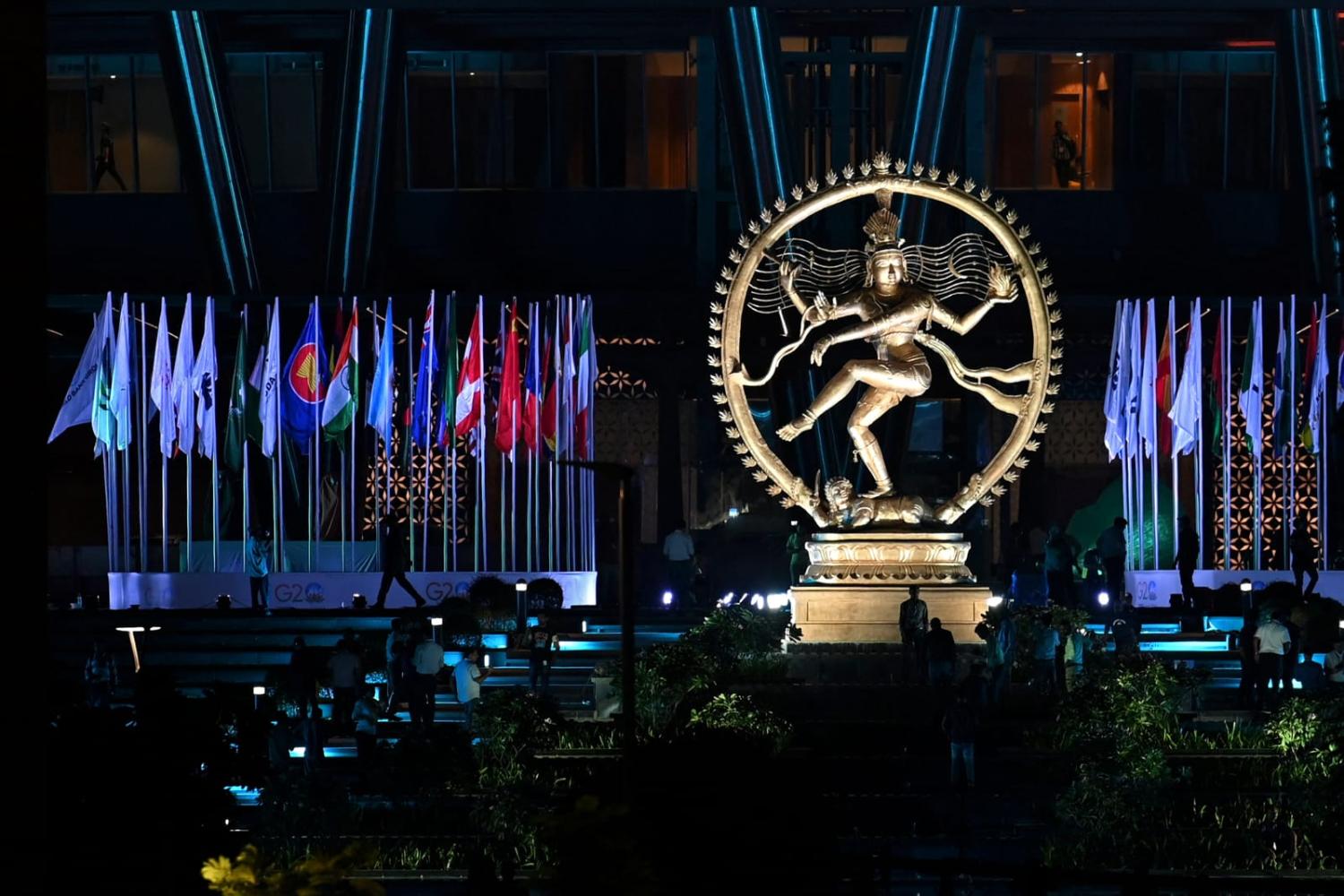In a recent article titled “This is G20 for we, the people”, Prime Minister Narendra Modi proudly stated that India’s G20 presidency has become a “people-driven movement”. “Over 200 meetings will have been organised in 60 Indian cities across the length and breadth of our nation, hosting nearly 100,000 delegates from 125 countries by the end of our term,” he wrote. “No Presidency has ever encompassed such a vast and diverse geographical expanse.”
The G20 Summit to be held in New Delhi this weekend is indeed markedly different from other diplomatic events that India has hosted. Since independence, foreign affairs in India have been the preserve of a few elite, western-educated and upper-caste Indians. India’s foreign policy has not been an electoral concern for most Indians. But under Modi, Indians have been more interested in foreign policy and India’s global image than ever before.
A recent report by the Pew Research Institute stated that 68 per cent of Indians polled in a survey felt that India’s global influence is getting stronger. With India’s presidency of the G20 Summit, this perception seems to have peaked. Local newspapers are filled with gushing coverage of the event. Giant posters and banners advertising the summit adorn the unusually squeaky-clean roads of New Delhi. Schools, colleges and offices have all been shut down as though in national celebration. “India’s moment has finally arrived”, seems to be the popular sentiment.
Meanwhile, the Indian government is working overtime to portray itself as the “Voice of the Global South”. Weeks after its presidency began, India hosted “The Voice of the Global South Summit” where 125 countries were invited to share their inputs and expectations of the G20 Summit. Over the last few months, India has strongly pushed for the membership of the African Union in the G20. As the presidency draws to a close, “Global South” has become a catchphrase in India, and many Indians seem convinced that India is indeed the “Voice of the Global South”.

Much of the analysis of India’s unusually celebratory treatment of what used to be a quiet and esoteric gathering of world leaders and diplomats has centred on India’s international ambitions to challenge Chinese hegemony over the Global South at a point when relations between the West and China and Russia are at an all-time low. Modi’s desire to burnish his image domestically by portraying himself as a popular global leader with just a few months to go before India’s national elections has also been acknowledged. However, the underlying ideological imperatives of Hindu nationalism that have driven India’s foreign policy under Modi are not as well understood.
The Hindu nationalist ideology seeks to portray India as the natural leader of the world – the Vishwa Guru. The Hindu civilisation, according to the Hindu nationalist ideology, has been oppressed, misunderstood and humiliated for centuries, thereby precluding India from fulfilling its unique mission and duty in the world as the Vishwa Guru. Under India’s most unabashedly Hindu nationalist government and prime minister yet, it is believed that India would finally attain its preordained position as the Vishwa Guru.
As the baton of the G20 presidency was handed over to India last year, Mohan Bhagwat, the chief of the Rashtriya Swayamsevak Sangh (RSS), the ideological fountainhead of dozens of Hindu nationalist organisations across India, including the ruling Bharatiya Janata Party (BJP), said “We have to go too far to unite the entire world. The G20 Presidency has boosted the morale of the people in the country. The people have realised that India was not lagging in the world and was poised to become ‘Vishwa Guru’.” Indians, who have been humiliated for centuries, it is implied, are now respected across the world.
India’s attempts to be seen as the “Voice of the Global South” also need to be seen in this ideological context. Leaders and idealogues of the RSS and the BJP repeatedly argue that the international liberal order led by the West has not only been ailing due to its mindless materialism, over-consumption and utilitarianism, but has also oppressed and exploited countries across the world. India’s G20 Summit is symbolic of the impending inversion of this global order, wherein India with its “human-centric” approach to development and progress will have the legitimate right and duty to guide the world. As argued by Kate Sullivan de Estrada, a professor of International Relations of South Asia at the University of Oxford, the idea of the Vishwa Guru responds to Western liberal hegemony not by seeking recognition as an equal, but by the “claim to social and moral superiority and action through a pedagogical mission”.
As delegates from across the world arrive in New Delhi, they would all be handed a booklet called “Bharat, the Mother of Democracy”. At a time when international media and advocacy groups have been speaking of democratic backsliding in India, the Indian government would declare to the world that not only does democracy continue to flourish in India, but that it also originated in ancient India – making the country a natural leader for the contemporary world.

